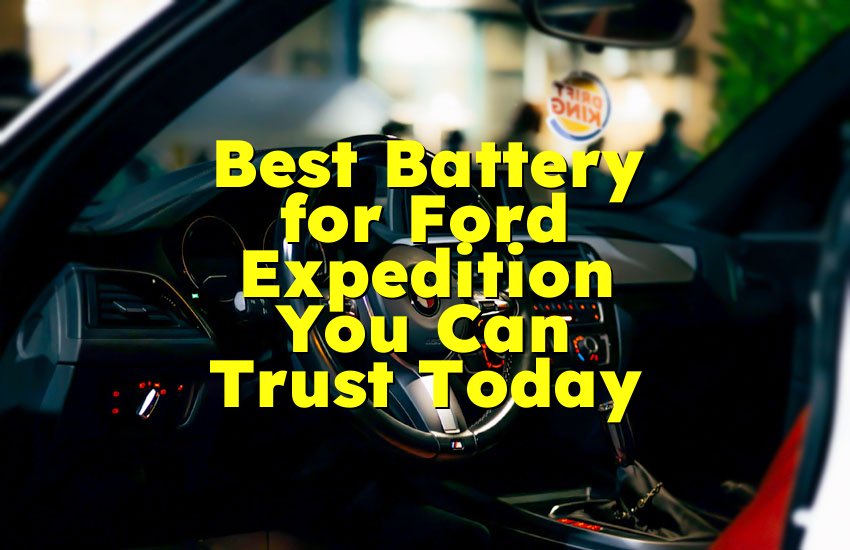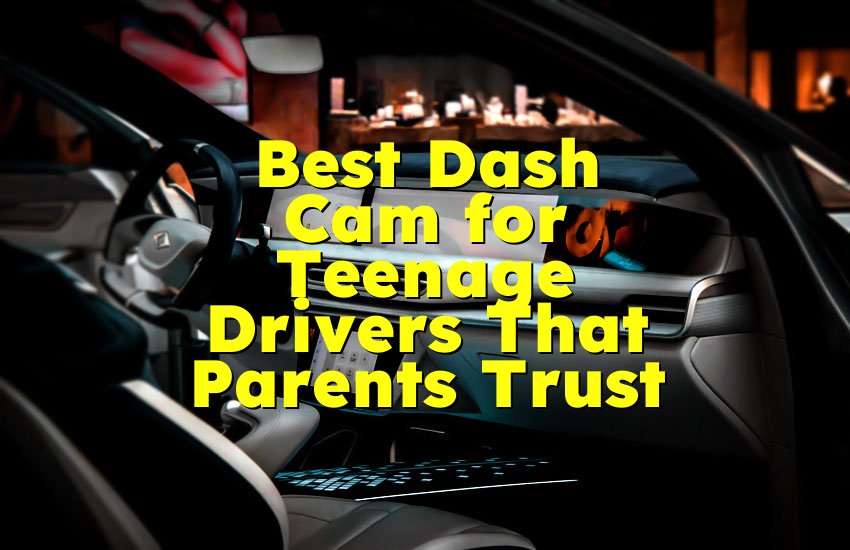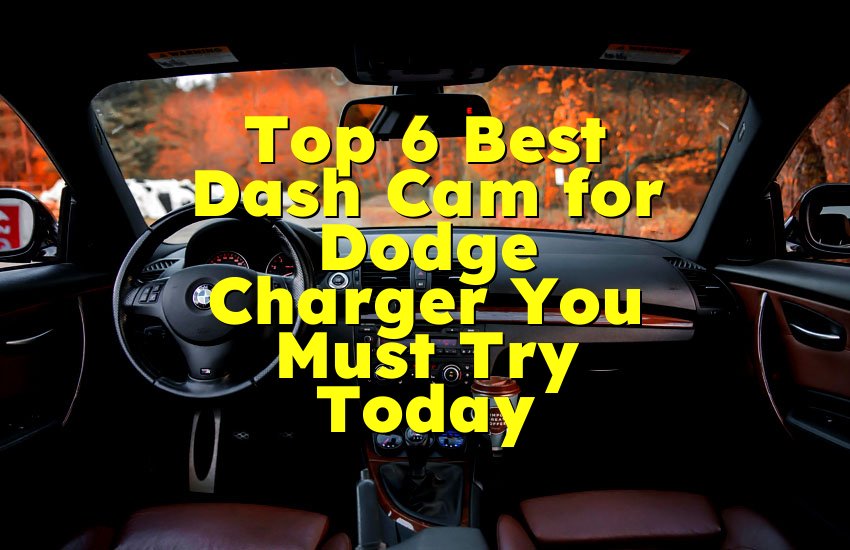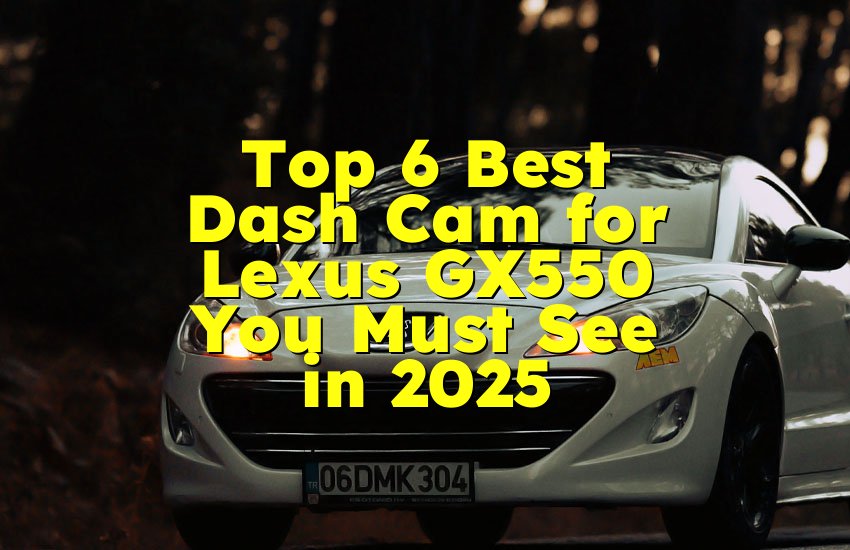As an Amazon Associate, I earn from qualifying purchases at no extra cost to you.
Best Dash Cam for Arizona Heat: Top 6 Picks (Buying Guide)
The Arizona sun is brutal. Cars can heat up fast, and accidents happen in a blink. Imagine leaving your car parked under the scorching sun, and then something happens while you're away. A dash cam could save you huge stress and money. But not all dash cams survive Arizona heat. Some fail in high temperatures, while others record perfectly. Let's talk about the best dash cams that survive heat, capture clear videos, and keep your car safe.
| Preview | Product | |
|---|---|---|
 | ROVE R3 | View On Amazon |
 | Vantrue S1 | View On Amazon |
 | Thinkware U3000 | View On Amazon |
 | BlackVue DR770X Box | View On Amazon |
 | Kingslim D4 4K | View On Amazon |
 | VIOFO A229 Pro | View On Amazon |
Top 6 Best Dash Cam for Arizona Heat: Stay Cool and Protected
ROVE R3 3-Channel Dash Cam
The ROVE R3 is a powerful choice for drivers in hot areas. It has a 3-inch touch screen that is easy to use. You only need one button for power, and everything else is automatic. Its firmware is smart and handles recording and settings without confusion. The dash cam records front, rear, and inside the cabin simultaneously. That means you get full coverage.
It comes with WiFi, both 2.4GHz and 5GHz, which makes transferring videos fast. The built-in GPS shows speed, direction, and location. A supercapacitor makes it resistant to heat and extends its life. Lithium batteries can fail in Arizona sun, but this cam stays safe. It has IR LEDs for night recording and supports large memory cards up to 512GB.
The ROVE app is user-friendly and available for iOS and Android. You can check videos, download them, and even update firmware remotely. It has features like loop recording, G-sensor, parking mode, and time-lapse. The lens has an f/1.5 aperture, which captures more light, making night videos clearer. You also get USB Type-C ports and a fast dual USB charger.
Front + cabin + rear coverage makes ROVE R3 perfect for rideshare drivers and families. Its built-in GPS and voice guidance add extra safety. You get a smooth, high-quality recording, even in Arizona heat. The dash cam is small but robust, and it handles long summer days without overheating.
- 3-channel recording (front, cabin, rear)
- 3" IPS touch screen
- Built-in GPS and voice guidance
- Supercapacitor for heat resistance
- Fast WiFi (2.4 & 5GHz)
- 24-hour parking mode, IR night vision
Vantrue S1 4K Dual Dash Cam
Vantrue S1 focuses on high-quality video with 4K front and 1080p rear cameras. The front lens is F1.47 with a Starvis CMOS sensor. This captures bright images even at night. The HDR technology improves clarity in dark areas, which is useful in parking lots or poorly lit streets.
Both front and rear cameras cover wide angles—170° front and 160° rear. The hidden rear camera is discreet, keeping your setup clean. It records at 1080p and 60fps for smooth motion. You get GPS tracking that shows speed, route, and exact location. This data can help in accidents or disputes.
Parking mode works 24/7. Motion detection triggers recording automatically. Low-bitrate mode saves space, allowing you to monitor your car all day. The supercapacitor ensures the camera survives Arizona temperatures. Extreme heat does not risk battery swelling or failure. Reliability is high, even during long summer drives.
With Vantrue S1, setup is simple. It offers complete coverage, high-quality video, GPS logging, and heat resistance. This makes it one of the top choices for hot climates. Night recordings are clear, accidents are documented, and your car stays secure when parked.
- 4K front + 1080p rear recording
- Starvis sensor and HDR night vision
- 24/7 parking mode with motion detection
- Built-in GPS for speed and route tracking
- Heat-resistant supercapacitor
- Smooth video at 1080p/60fps
Thinkware U3000 Dual Dash Cam
Thinkware U3000 is designed for drivers who want reliable front and rear coverage. It records in 4K, capturing clear license plates and road signs. The Sony STARVIS 2 sensor ensures details are sharp day and night. Wide dynamic range keeps images natural. Dewarping technology avoids fish-eye distortion.
Radar parking mode is unique. It uses radar to detect movement and wakes the camera to record. Time-lapse recording saves memory while keeping parking protection active. GPS tagging provides speed, location, and safety alerts. The camera pairs easily with WiFi and the Thinkware app. You can check recordings or live view remotely.
This dash cam also offers forward collision and lane departure warnings. Commuters, rideshare drivers, and families benefit from these alerts. Super Night Vision 4.0 ensures clear night videos. Extreme temperatures in Arizona do not affect its performance due to the internal capacitor and high-quality design.
Thinkware U3000 is a premium choice. It balances high-resolution video, safety alerts, and heat-resistant features. Whether parked under the sun or driving at night, this dash cam delivers reliable performance.
- 4K front + rear coverage
- Sony STARVIS 2 sensor
- Radar parking mode
- GPS and WiFi connection
- Safety alerts (collision, lane departure)
- Time-lapse and motion detection
BlackVue DR770X Triple-Channel
BlackVue DR770X offers three-camera coverage: front, rear, and interior. This is ideal for rideshare drivers or families. The STARVIS sensor captures clear video even in low light. Optional LTE allows remote access to live footage.
WiFi and GPS features are built-in. Videos can be reviewed on smartphones or computers. Cloud storage adds extra security. This camera is designed to survive heat. Supercapacitor technology prevents battery issues in high temperatures. Loop recording ensures storage space is managed automatically.
The triple-channel design covers every angle. Night recording uses advanced sensors for visibility inside and outside the car. Installation is simple, and the camera looks sleek. BlackVue DR770X combines heat resistance, cloud access, and clear video. It's perfect for Arizona's harsh sun.
- Triple-channel recording
- STARVIS sensor for low-light clarity
- LTE for live access
- Supercapacitor for heat protection
- Cloud backup support
- Loop recording
Kingslim D4 4K Dual Dash Cam
Kingslim D4 4K is compact but powerful. It records front in 4K and rear in 1080p. Wide angles cover 170° front and 150° rear. Sony STARVIS sensor ensures night clarity. WDR technology balances light and dark areas.
The app control allows playback, downloading, and settings adjustment via phone. Built-in GPS records location and speed automatically. G-sensor protects important videos during accidents. Parking monitor captures events while the car is stationary. The design is heat-resistant with a supercapacitor, ensuring long-lasting performance in Arizona sun.
Kingslim D4 offers sharp video, easy app control, GPS, and parking mode. It's a reliable dash cam that handles extreme temperatures and protects your car 24/7.
- 4K front + 1080p rear recording
- Sony STARVIS sensor and WDR
- Built-in GPS logging
- App control for Android and iOS
- G-sensor and parking monitor
- Heat-resistant supercapacitor
VIOFO A229 Pro Dual Dash Cam
VIOFO A229 Pro features dual Sony STARVIS 2 sensors. Front records 4K and rear 2K. HDR improves night clarity. It captures details like license plates even in fast traffic. The dash cam offers three parking modes: auto event detection, low bitrate, and time-lapse.
Voice commands let you control the dash cam hands-free. Notifications alert you about memory card issues. 5GHz WiFi connects quickly for video transfer and app control. Quad-mode GPS logs speed, location, and timestamps. Loop recording ensures storage space is managed efficiently.
VIOFO A229 Pro is heat-resistant with a supercapacitor. It records smooth, high-quality videos. The camera is perfect for Arizona drivers who need clarity, durability, and complete coverage.
- 4K front + 2K rear recording
- HDR night vision
- 3 parking modes
- Hands-free voice control
- 5GHz WiFi and app support
- Quad-mode GPS and loop recording
Arizona heat is intense, and your dash cam must survive it. These six dash cams are designed to handle high temperatures. They capture clear videos, protect your car, and offer parking monitoring. Features like supercapacitors, GPS, and WiFi make them reliable. Choose one that fits your needs and budget. Investing in a good dash cam gives peace of mind while driving or parking. Your car and safety deserve it.
| Dash Cam | Front Resolution | Rear Resolution | Sensors | Heat Protection | App Control | Parking Mode | GPS | Night Vision |
|---|---|---|---|---|---|---|---|---|
| ROVE R3 | 1080p | 1080p | 3-channel | Supercapacitor | Yes | Yes | Yes | IR LEDs |
| Vantrue S1 | 4K | 1080p | Dual | Supercapacitor | Yes | Yes | Yes | Starvis HDR |
| Thinkware U3000 | 4K | 4K | Dual | Supercapacitor | Yes | Radar | Yes | Super Night Vision 4.0 |
| BlackVue DR770X | 1080p | 1080p | Triple | Supercapacitor | Yes | Yes | Yes | STARVIS |
| Kingslim D4 | 4K | 1080p | Dual | Supercapacitor | Yes | Yes | Yes | STARVIS WDR |
| VIOFO A229 Pro | 4K | 2K | Dual | Supercapacitor | Yes | Yes | Quad-mode | STARVIS HDR 2.0 |
Things to Consider Before Buying Dash Cam for Arizona Heat
Choose the Right Heat-Resistant Design
Not all dash cams can handle Arizona temperatures. Most standard cameras will struggle when the inside of your car hits 140°F. Look for cameras with supercapacitors instead of traditional batteries. Supercapacitors tolerate high heat better and last longer. Also, pick cameras made with heat-resistant plastic or materials that won't warp in the sun.
Placement matters too. Avoid sticking your dash cam directly on the windshield where the sun hits. Consider a slightly shaded corner or using sun visors to reduce direct exposure. Even the best cameras need some protection from relentless sun rays.
Many manufacturers now label cameras as "high-temperature resistant." Always check the specifications. Don't just trust fancy pictures or marketing. Real reviews from hot regions like Arizona will tell you how the camera performs over time. Look for people who left their car parked in full sun and check their feedback.
Choosing the right design ensures your camera works all year. It reduces failure risks and keeps your recordings safe. You want reliability, especially when accidents happen. A camera that melts on day one is no help.
- Supercapacitor models last longer in heat.
- Heat-resistant materials prevent warping.
- Place away from direct sunlight.
- Read reviews from hot climates.
Look for High-Quality Night Recording
Arizona isn't just sunny; nights can be dark on rural roads. A dash cam must perform well in low light. Look for models with STARVIS or HDR sensors. These improve night clarity and make license plates readable. Night recording quality is often overlooked but critical.
Also, consider wide aperture lenses. They capture more light in dark areas. This makes your video clearer without artificial brightness. Some dash cams enhance images using software, reducing grainy footage. Even small differences in sensor quality matter for legal or insurance purposes.
Check frame rate too. Higher frame rates capture smooth motion, important when cars move fast at night. Many cameras struggle with balance between resolution and frame rate. Make sure your chosen model maintains clarity without sacrificing smoothness.
Good night recording ensures you capture important events any time. You don't want blurry or useless video if something happens on a desert road at midnight. The right sensor, lens, and software can make all the difference.
- STARVIS or HDR sensors improve low-light visibility.
- Wide aperture lenses capture more night light.
- High frame rates ensure smooth recording.
- Night-time footage is crucial for safety and evidence.
Memory and Storage Capacity
Recording all day in Arizona heat generates a lot of video files. Dash cams must support large memory cards. 128GB or 256GB is ideal. Loop recording is key, so old footage gets replaced automatically. You won't need to worry about running out of space.
High-resolution videos, especially 4K, require faster SD cards. Look for cards rated U3 or V30. Slow cards can cause lag or corrupted files. This is even more important when recording in extreme heat, as high temperatures increase error risk.
Some cameras offer cloud backup. This feature saves critical clips if your card fails. It also gives peace of mind in case the dash cam is stolen. You can access footage remotely, which is helpful for security or insurance purposes.
Choosing the right storage ensures continuous recording. It prevents losing evidence and saves stress. In Arizona's harsh sun, memory reliability is just as important as heat resistance.
- Large SD cards (128GB+) prevent frequent deleting.
- Loop recording automatically overwrites old files.
- Use fast U3 or V30 cards for 4K.
- Cloud backup keeps footage safe.
Power Source and Battery Type
Regular lithium batteries struggle in heat. They can swell, leak, or die quickly. Supercapacitor dash cams are safer. They handle high temperatures and recharge faster. This matters if you plan to use your dash cam 24/7.
Some cameras draw power from the car's fuse box. Hardwiring ensures the camera records even when parked. This is useful in Arizona, where leaving the engine running for heat or AC is not practical. Some dash cams stop recording when the battery drops to protect your car.
Always check the camera's operating temperature. Many models are rated up to 158°F or more. Don't guess or assume. Extreme heat can ruin a battery in minutes. Combine supercapacitor technology with proper installation for best results.
Reliable power ensures your camera never fails unexpectedly. Heat-tolerant models last longer and save money on replacements. You want a dash cam that records whenever needed without draining your car battery.
- Supercapacitors handle extreme heat.
- Hardwiring allows 24/7 recording.
- Check operating temperature rating.
- Protects car battery while recording.
Ease of Installation and Cable Management
Arizona drivers know sun glare and cracked windshields are common. Proper installation keeps the camera secure. Adhesive mounts are easy but ensure they tolerate heat. Cheap mounts may loosen when hot.
Route cables carefully. Avoid leaving them near vents or sharp bends. This prevents wear and prevents melted or frayed wires. Some cameras come with long, flexible cables. They make installation easier, especially for hardwiring.
Test placement before final attachment. Check camera view and angle. A poorly placed camera can block your sight or record the wrong area. Installation isn't just about sticking it on the glass; it's about performance, safety, and durability.
Good installation prolongs life. It keeps video clear and prevents damage. Even the best dash cam fails if installed poorly. Take time, plan placement, and secure cables properly.
- Heat-resistant adhesive mounts.
- Route cables away from vents or edges.
- Flexible cables simplify installation.
- Test camera angle before final mounting.
Extra Features to Look For
GPS tracking is essential. It logs speed and location, adding credibility to footage. Some cameras offer Wi-Fi or app access. You can check recordings instantly on your phone. This is useful for accident reporting or sharing clips.
Parking mode is another must-have. It records when motion is detected while parked. In Arizona, sun-activated triggers can be tricky, so sensitive motion detection helps. Some dash cams even detect collisions and start recording automatically.
Look for voice control or simple touchscreens. They make operation easy while driving. You want a camera that stays out of your way but works reliably. Additional sensors for lane departure or speed alerts can improve safety.
Extra features aren't just bells and whistles. They enhance convenience, safety, and evidence reliability. Invest in models that combine heat durability with useful tech.
- GPS tracking logs speed and location.
- Parking mode captures incidents while parked.
- Wi-Fi and app access improve convenience.
- Extra sensors add safety features.
Arizona heat is harsh, but the right dash cam can survive and protect you. Focus on heat-resistant design, night recording, reliable storage, safe power, proper installation, and extra features. Each factor ensures durability and dependable footage. A dash cam is only useful if it works when you need it most. Choose wisely, and enjoy peace of mind on every drive.
| Feature | Importance | Recommendation |
|---|---|---|
| Heat Resistance | High | Supercapacitor, heat-resistant materials |
| Night Recording | High | STARVIS/HDR sensors, wide aperture |
| Memory | High | 128GB+, U3/V30 SD cards |
| Power | High | Hardwired, supercapacitor, high temp rating |
| Installation | Medium | Heat-resistant mounts, cable management |
| Extra Features | Medium | GPS, parking mode, Wi-Fi access |
Do dash cams survive extreme Arizona heat?
Yes, some dash cams can survive high temperatures if designed with heat-resistant components. Supercapacitors, for instance, handle extreme heat better than lithium batteries. Cameras with STARVIS sensors and proper ventilation also prevent overheating. In Arizona, temperatures can exceed 110°F, and standard dash cams might fail. Choosing models with heat protection ensures reliability, long lifespan, and continuous recording even when parked under direct sunlight.
The ROVE R3, VIOFO A229 Pro, and BlackVue DR770X are examples of heat-resistant dash cams. They use supercapacitors, which are stable in extreme conditions. Some even offer radar parking mode and time-lapse recording, reducing strain on the hardware. Investing in a dash cam with heat protection ensures videos remain clear and storage is safe.
Drivers also need to park in shaded areas when possible. Even with heat-resistant models, minimizing direct sun exposure prolongs camera life. Regularly checking video quality ensures sensors are functioning correctly. Some dash cams have built-in alerts if overheating occurs, giving additional protection.
Using the dash cam during summer also requires attention to firmware updates. Manufacturers often release updates to improve performance in extreme heat. Always follow recommended installation instructions, keeping the device out of direct sun when possible. Heat-resistant dash cams provide both peace of mind and high-quality footage.
Can dash cams record 24/7 in Arizona sun?
Yes, many dash cams offer 24/7 parking mode, but continuous recording in extreme heat requires heat-resistant designs. Supercapacitor-based dash cams are ideal because they do not overheat like battery-powered models. Time-lapse mode can also reduce storage usage and prevent overheating. Models like Vantrue S1, VIOFO A229 Pro, and Thinkware U3000 provide features to safely record while parked all day.
Motion detection ensures only important events are recorded. Low-bitrate recording saves memory space while keeping essential footage. Heat-resistant dash cams maintain proper functioning even at high temperatures, giving consistent protection. Some cameras include radar sensors to detect movement and start recording automatically, further protecting your car.
It is still best to park in shaded areas when possible. Combining heat-resistant dash cams with smart parking choices improves performance. Regularly checking firmware ensures features like auto-recording and GPS work correctly. Investing in a reliable dash cam allows 24/7 monitoring without the risk of failure during hot Arizona days.
Do 4K dash cams improve accident evidence?
Absolutely. 4K dash cams provide high-resolution video that captures fine details like license plates and street signs. In case of accidents, the extra clarity is invaluable. Lower-resolution cameras may blur important details. High-end models like Vantrue S1 and VIOFO A229 Pro ensure you get clear evidence in all lighting conditions.
Night vision also plays a big role. STARVIS sensors and HDR technology improve low-light recording. This means incidents at night or in dark parking lots are still visible. GPS data logs speed, route, and location, adding proof in case of disputes. Time-stamped videos are useful for insurance claims or legal matters.
4K cameras allow zooming without losing clarity. This can be critical in identifying other vehicles or witnesses. Even with Arizona heat, modern heat-resistant dash cams maintain video quality. Choosing 4K ensures the footage is clear, reliable, and ready for any situation that may arise while driving.
Can dash cams alert you while driving in heat?
Yes, some dash cams have safety alerts for forward collisions or lane departure. These features improve awareness in high-risk driving areas. Thinkware U3000, for example, warns you about lane drift and potential collisions. Alerts help you react faster, reducing accident chances.
Heat does not affect alert systems in quality dash cams. Built-in GPS provides speed and location alerts, helping monitor driving behavior. Some apps allow remote notifications to your phone, keeping you informed even when away from the vehicle. Supercapacitor-based dash cams continue operating even under extreme sun exposure.
Additionally, voice-guided warnings make it easy to stay safe without checking the screen. The camera records the event while alerting you. Using dash cams with alerts adds another layer of protection. They keep drivers aware, help avoid accidents, and maintain reliable recording even under Arizona's extreme heat.
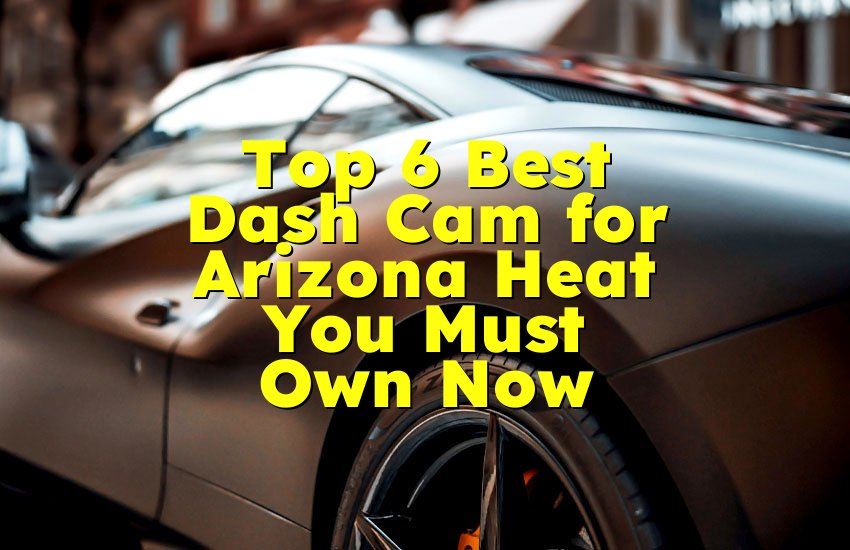
Frequently Asked Questions (FAQs)
Is it necessary to buy a heat-resistant dash cam for Arizona?
Yes. Arizona's extreme heat can damage regular dash cams. Heat-resistant models with supercapacitors prevent battery swelling or failure. They last longer, maintain video quality, and protect your car.
Do dash cams drain car battery?
Traditional battery-powered dash cams may drain the car battery if left on for long periods. Supercapacitor models use minimal power and prevent battery drain.
Can 4K dash cams record at night clearly?
Yes. Models with STARVIS or HDR sensors provide clear night recordings. Low-light areas remain visible, and license plates can be read easily.
Do I need a large memory card for 24/7 recording?
Yes. 128GB or higher memory cards are recommended for full-time monitoring. Loop recording ensures older files are overwritten automatically.
Is cloud storage worth it?
Yes. Cloud storage keeps backup footage safe in case the memory card is damaged or stolen. Some models offer remote access via apps.
Can dash cams survive extreme summer sun on windshield?
Yes, if they are designed with supercapacitors or heat-resistant materials. Avoid prolonged direct exposure when possible.
Do GPS features really matter?
Yes. GPS logs speed, location, and route. This data is critical for insurance claims or accident disputes. It adds credibility to your recordings.







